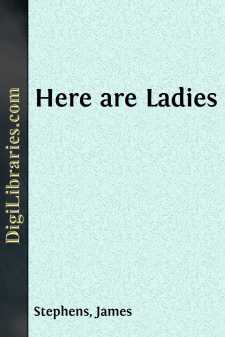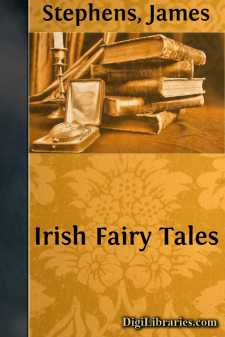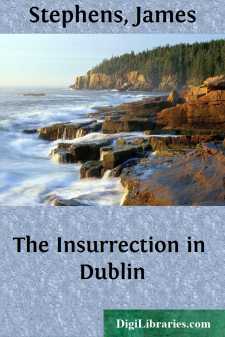Categories
- Antiques & Collectibles 13
- Architecture 36
- Art 48
- Bibles 22
- Biography & Autobiography 813
- Body, Mind & Spirit 142
- Business & Economics 28
- Children's Books 17
- Children's Fiction 14
- Computers 4
- Cooking 94
- Crafts & Hobbies 4
- Drama 346
- Education 46
- Family & Relationships 57
- Fiction 11829
- Games 19
- Gardening 17
- Health & Fitness 34
- History 1377
- House & Home 1
- Humor 147
- Juvenile Fiction 1873
- Juvenile Nonfiction 202
- Language Arts & Disciplines 88
- Law 16
- Literary Collections 686
- Literary Criticism 179
- Mathematics 13
- Medical 41
- Music 40
- Nature 179
- Non-Classifiable 1768
- Performing Arts 7
- Periodicals 1453
- Philosophy 64
- Photography 2
- Poetry 896
- Political Science 203
- Psychology 42
- Reference 154
- Religion 513
- Science 126
- Self-Help 84
- Social Science 81
- Sports & Recreation 34
- Study Aids 3
- Technology & Engineering 59
- Transportation 23
- Travel 463
- True Crime 29
James Stephens
James Stephens (1880–1950) was an Irish novelist and poet known for his unique blend of fantasy, folklore, and Irish nationalism in his works. His most famous novel, "The Crock of Gold" (1912), is a whimsical tale that mixes mythology with satire and humor. Stephens was also celebrated for his poetry, particularly the collection "Insurrections" (1909), which reflected his engagement with Irish revolutionary ideals. In addition to his literary output, Stephens was an active figure in the Irish literary revival and had close ties with figures like W.B. Yeats.
Author's Books:
Sort by:
by:
James Stephens
THREE HEAVY HUSBANDS I He had a high nose. He looked at one over the collar, so to speak. His regard was very assured, and his speech was that short bundle of monosyllables which the subaltern throws at the orderly. He had never been questioned, and, the precedent being absent, he had never questioned himself. Why should he? We live by question and answer, but we do not know the reply to anything until...
more...
by:
James Stephens
CHAPTER I Finnian, the Abbott of Moville, went southwards and eastwards in great haste. News had come to him in Donegal that there were yet people in his own province who believed in gods that he did not approve of, and the gods that we do not approve of are treated scurvily, even by saintly men. He was told of a powerful gentleman who observed neither Saint's day nor Sunday. "A powerful...
more...
by:
James Stephens
CHAPTER I MONDAY This has taken everyone by surprise. It is possible, that, with the exception of their Staff, it has taken the Volunteers themselves by surprise; but, to-day, our peaceful city is no longer peaceful; guns are sounding, or rolling and crackling from different directions, and, although rarely, the rattle of machine guns can be heard also. Two days ago war seemed very far away—so far,...
more...




